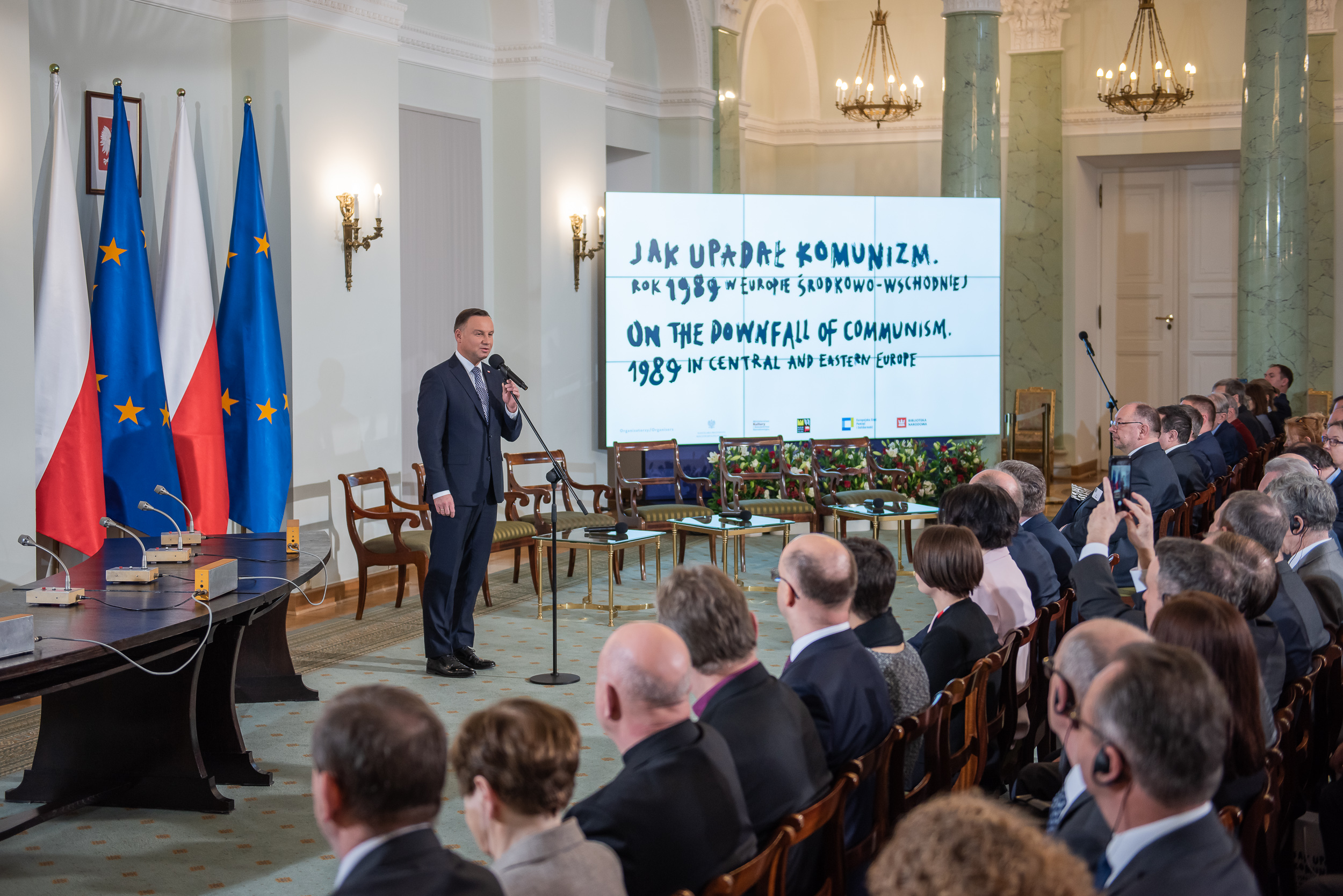On 4 April, the conference “On the downfall of communism. 1989 in Central and Eastern Europe” started. The two-day event marks the 30th anniversary of the conclusion of Polish Round Table Talks.
Peaceful negotiations between representatives of Polish communist authorities and democratic opposition constituted a meaningful point of reference for other countries of the Eastern Bloc. It is worth remembering, however, that different scenarios of political transformations and the complexity of processes behind the Autumn of Nations in the region have resulted in heterogeneous memory of this period in history. The goal of the conference “On the downfall of communism. 1989 in Central and Eastern Europe” is thus to put the phenomena of the year 1989 in an in-depth, cross-national perspectives.
The event has been opened by the President of the Republic of Poland Andrzej Duda. “Today we, the Poles, are proud to be the first society, the first nation, which then, in 1989, so clearly said “No” to the communists. But, of course, we do not forget about our neighbours and those who shared the same fate with us at that time” – emphasized the President. He outlined both wider, international contexts of the democratic changes – the role of Ronald Reagan, Margaret Thatcher, Pope John Paul II, among others – as well as the local specificity and uniqueness of what happened in Poland in 1989.
The first day of the conference takes place at the Presidential Palace (former Namiestnikowski Palace) – a symbolical location where the inauguration and conclusion of the Polish Round Table Talks were held.
The debates have focused mainly on the political outcomes of the 1989 transformations and their relevance for the world of today. Invited speakers – historians, sociologists and political scientists from across Europe and from US – discuss the legacies of the crucial changes brought by the fall of communism.
See the full programme and list of speakers
The second day of the conference will take place at Rzeczpospolita Palace and will be opened by Prof. Piotr Gliński, Deputy Prime Minister of the Republic of Poland, Minister of Culture and National Heritage. Discussions will be devoted more to the economic, social and cultural aspects of the regimes changes of 1989.
For more information, see the event’s webpage:
Events page
The event is carried out as a part of international series of conferences "1989 – Changes and Challenges" devoted to the collapse of communism in Europe.
Read more about "1989 – Changes and Challenges"
The conference is organised by the Ministry of Culture and National Heritage in cooperation with Chancellery of the President of the Republic of Poland, Polish History Museum, ENRS, and National Library.
